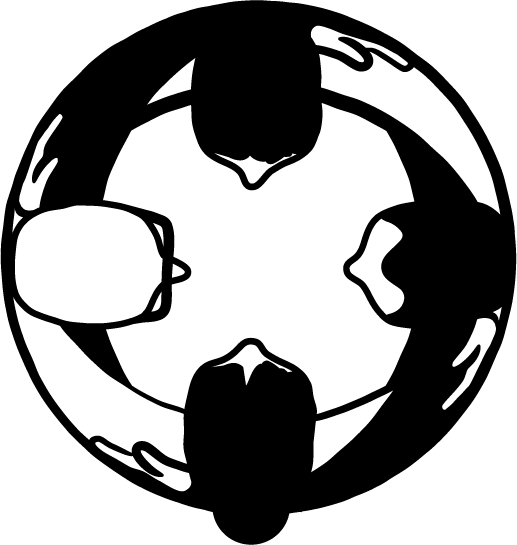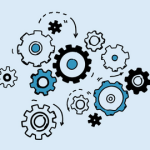“The biggest challenge is confidence”- Simone Maini, Elliptic COO
29 April 2019

How I got here: Simone Maini, COO of Elliptic, the London-based crypto-crime prevention agency.

When it comes to gender, the numbers in the tech industry make for unpleasant reading. More than 40% of senior leadership teams have no female representation at all according to a recent report in the Guardian.
Thankfully, however, some companies are bucking the trend. Companies like crypto-crime prevention agency Elliptic.
Simone Maini is COO, overseeing operations, finance, marketing and sales. With a BA in History from the University of Cambridge, she has helped guide the organisation from blue-sky start-up to a world leader in detecting and preventing illicit activity on the bitcoin and ethereum blockchains.
Talentful sat down with Simone to find out how she reached the top of a trailblazing tech firm and what she’d say to young women wanting to follow this not-so-well-beaten path.

According to recent figures, just one in six tech specialists in the UK are women, and only one in ten are IT leaders. Why do you think this is?
It’s a tough one. I think largely the pipeline just hasn’t been there. But it is getting better. Women are starting to see that the tech industry isn’t just about boys and their toys. There is such a diversity of roles in a software business like Elliptic. There’s engineering and data science, but there’s also roles like mine in business and sales and lots of areas where you can have a really big impact. That isn’t to say that women can’t be engineers or data scientists. Of course they can. Our company proves that.
As a woman, have you encountered any challenges in your journey to the top? If so, how did you overcome them?
The biggest challenge is confidence. Knowing that, actually, there is no such thing as an environment or culture where just one type of person can be successful. It’s about giving yourself a pep talk, saying: ‘I belong here as much as anyone else. I’ve got the skills. I’ve got the potential.” That’s been my biggest challenge. I suppose I’ve been lucky that I joined a team without any preconceived ideas about where you should come from or look like to do a good job.

What advice would you give to women who want to progress in the tech industry?
Just go for it. Take the risk. Because, really, what have you got to lose? If it doesn’t work out, you’ve learned a lesson from it, can move on and go for something else. But most importantly, be confident in yourself, and speak up when you have an opinion. I wish someone had told me that when I was starting out. I still have to remind myself to just jump in with both feet first from time to time.
Is there a glass ceiling in tech, and if so how do you break through it?
There are definitely big challenges for women making progress in the industry. But to say there’s a glass ceiling is a bit loaded from my perspective. The opportunities are there, and as a group we have to do more to go and grab them.

What do you think it is about you personally that’s got you this far?
The same things we look for in anyone, to be honest. I call it the Swiss Army knife skillset, which every start-up needs – someone with the skills for the core role they’ve been hired for, but also other qualities that they’re willing to put to use across the company.
We all wear multiple hats here and that’s something that I’ve been quite deliberate about cultivating. Versatility and the ability to adapt are crucial to succeeding in a start-up, especially in tech.
What’s the secret ingredient to building a brilliant team?
That’s a huge question and something we think about a lot. I’m not sure we’ve cracked it but there are definitely values and behaviours we look for. Are they team players? Are they naturally curious? Are they really open with each other? Do they respect each other enough to give feedback, and take it? And are they really passionate about the problem we’re trying to solve? Because at the end of the day, passion is the most powerful ingredient of a great team.

What’s the closest it’s come to disaster, and what did you learn?
Ha! It feels like it comes close to disaster once a month! When you’re building a business like this, the highs are incredible. And the lows just feel awful. But that, simply, is because we care so much about what we’re doing here.
What scares you the most?
The unknown. My team will tell you that. I hate not knowing what’s around the corner — the things we’re not in control of, or planning for. But that’s business, right? You have to learn to just roll with it.
What does ‘success’ mean to you?
I think, probably, it means waking up and being happy about where you’re about to go, and who you’re about to spend your day with. Feeling like what you’re working on is contributing to something bigger than yourself.

What will the future of work look like? More remote working? Less human connections?
A lot of what we do here could be done remotely. But we’re making conscious choices to have all our team physically in the same place, having lunch together, because we believe that results in a better quality product, and a better quality environment in which to grow. You should never underestimate the power of human connections.
As AI integrates deeper into the workplace, how should we look to future-proof ourselves?
I wonder if we should think about other ways of getting leverage in what we do that may not require human capital. We definitely have an obligation to explore what those are.
Automation is a bit scary but it’s also exciting. It means, as individuals, we can reduce the burden by reducing the ‘other work’ and focus on the things we are really good at and care deeply about.




